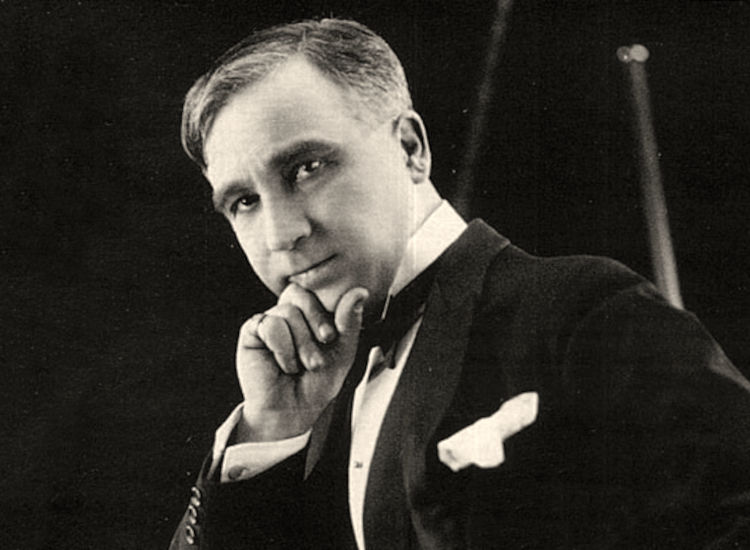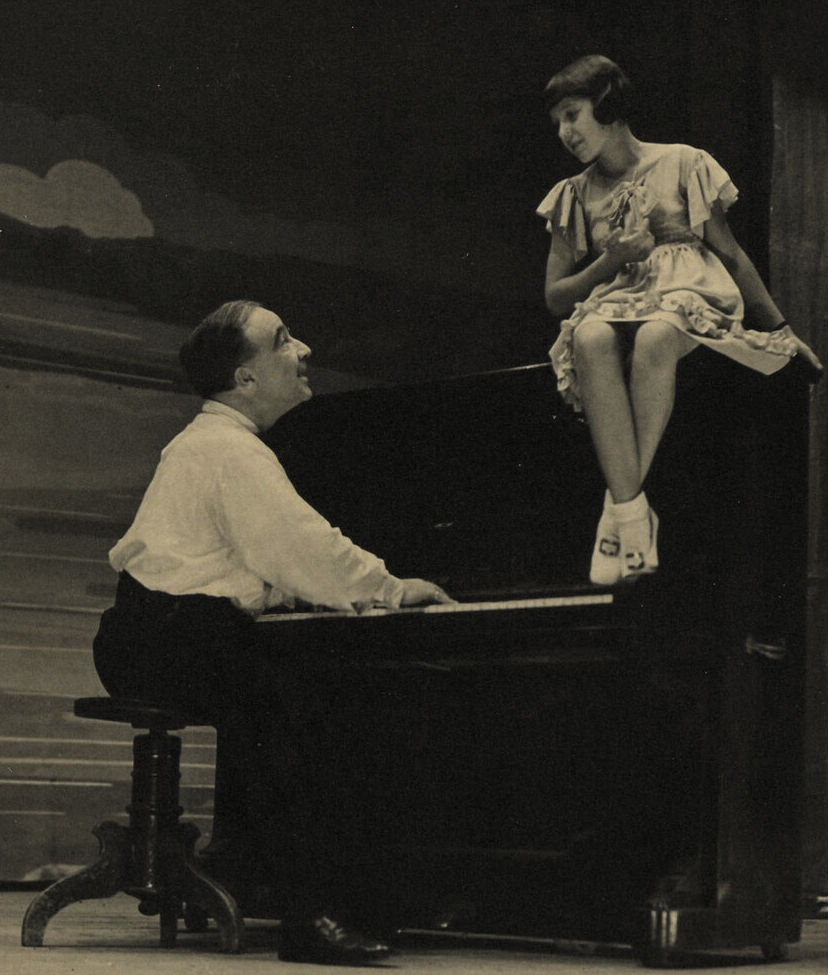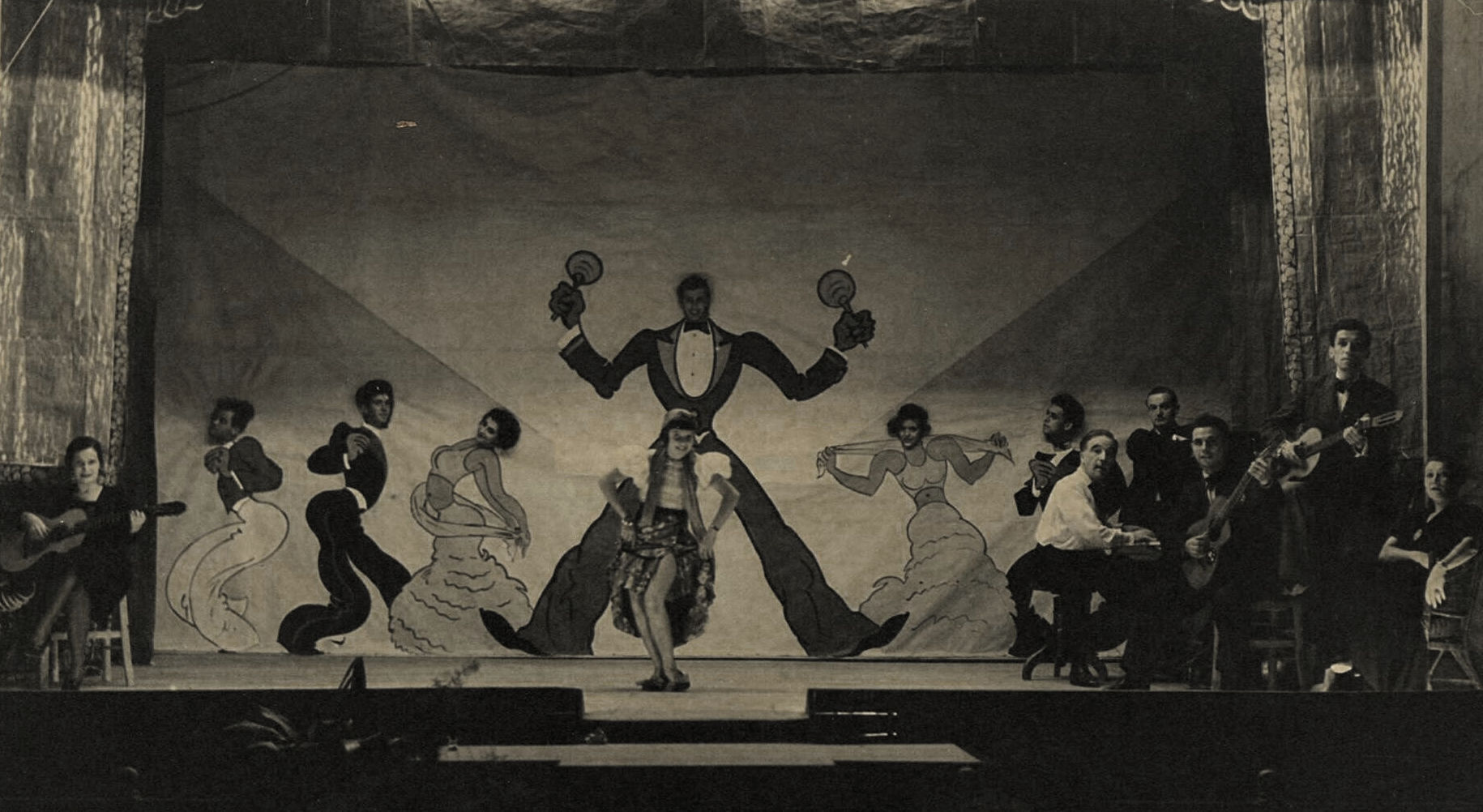Versatile, romantic, restless, and deeply emotional, Attik was one of the most emblematic figures of Greek light music. Composer, lyricist, pianist, master of ceremonies, and actor, he managed to create a unique artistic universe in interwar Athens, with his famous Mandrα at its center. Through music, humor, and his innovative outlook, he nurtured new talents and gave voice to an entire generation.
According to music critic Giorgos Leotsakos, “the rare combination of lyrical sensitivity, spontaneous melodic inspiration, and solid technique elevated Attik to perhaps the most important representative of the Western-oriented pre-war Greek light song.”
From Zagazig to Paris
His real name was Kleon Triantafyllou. He was born on March 19, 1885, in Zagazig, Egypt, into a wealthy Greek-Egyptian family. After the death of his father, his mother moved with the children to Athens.
Although he initially pursued studies in Law, music won him over from an early age. In 1907, he graduated from the University of Athens and soon traveled to Paris for postgraduate studies, aiming at a diplomatic career. However, he quickly surrendered to his true passion: music.

He enrolled at the Paris Conservatory, worked as a master of ceremonies in theaters, wrote hundreds of songs, and saw his compositions performed by leading artists such as Maurice Chevalier and Mistinguett. During those years, he adopted the artistic pseudonym Attik, inspired by the land of Attica.
Love, Loss, and Songs
His personal life was marked by dramatic experiences that often fueled his creativity. His first marriage, in 1909, to Marie-Hélène Riff, ended tragically when both his wife and their child died prematurely. His second marriage, to Marika Filippidou, left deep scars. She abandoned him for Stamatis Merkouris, father of the famous Melina, and their story inspired some of his most poignant songs, such as “Zitate na sas po” and “Eida matia.” His third marriage to the Russian dancer Soura was more stable. She supported him faithfully, although a brief infidelity on her part led to another of his timeless songs, “Tis mias drahmis ta iasemia.”
The Legendary “Mantra”
In 1930, Attik returned permanently to Athens and opened his Mantra at 20 Mithymnis Street, in Amerikis Square. This open-air theater, inspired by the cabarets of Montmartre, quickly became the artistic hub of the capital.
With sketches, recitations, songs, and improvisations, the Mantra hosted artists who would later leave a significant mark on Greek theater and music. Danae, the Kalouta sisters, Nini Zaha, Kali Kalo, Mimis Traiforos, Giorgos Oikonomidis, as well as writers like Alekos Sakellarios and Dimitris Bogris, all passed through its stage.

The atmosphere was unforgettable, as his muse Danae Stratigopoulou described: “A little Paris, a little Orient, some Athens, and a lot of Attik. A mixture of retsina and champagne, Attic salt and Gallic finesse.”
In 1935, the Mantra moved to the small theater “Delphi” on Acharnon Street, continuing until 1940, when political attacks and violent incidents forced it to close.
Songs That Last Forever
Attik remained prolific until the end of his life. He composed the operetta “Aphrodite of Milos” and wrote around 200 songs in Greece, along with dozens more in Paris. Among them are gems that became classics and are still sung today, such as “Kaimena ta niata,” “Maramena ta gioulia ki oi violes,” “To organaki,” “Na zei kaneis,” and “To trechantiri.”
He even left his mark on cinema, starring in 1944 in Giorgos Tzavellas’ debut film “Cheirokrothimata” (Applause), which was based on his life.
The Tragic End
During the Occupation, Attik continued performing in venues such as “Alkazar,” but his spirit had been deeply shaken. In the summer of 1944, he was brutally beaten by German soldiers and never fully recovered from the trauma.

On August 29, 1944, just weeks before liberation, he ended his life with veronal. His death was officially recorded as an “accident,” but it remains one of the most tragic chapters in the artistic history of Athens.
Legacy of Another Era
Attik left behind a world filled with melody, humor, romance, and melancholy. His Mandrα was not just a cultural venue; it became a symbol of a whole generation that found, in his music, the expression of its deepest emotions.
Through his songs, light music gained depth, poetry, and genuine emotion. And although his end was bitter, his memory lives on every time one of his melodies is heard.



